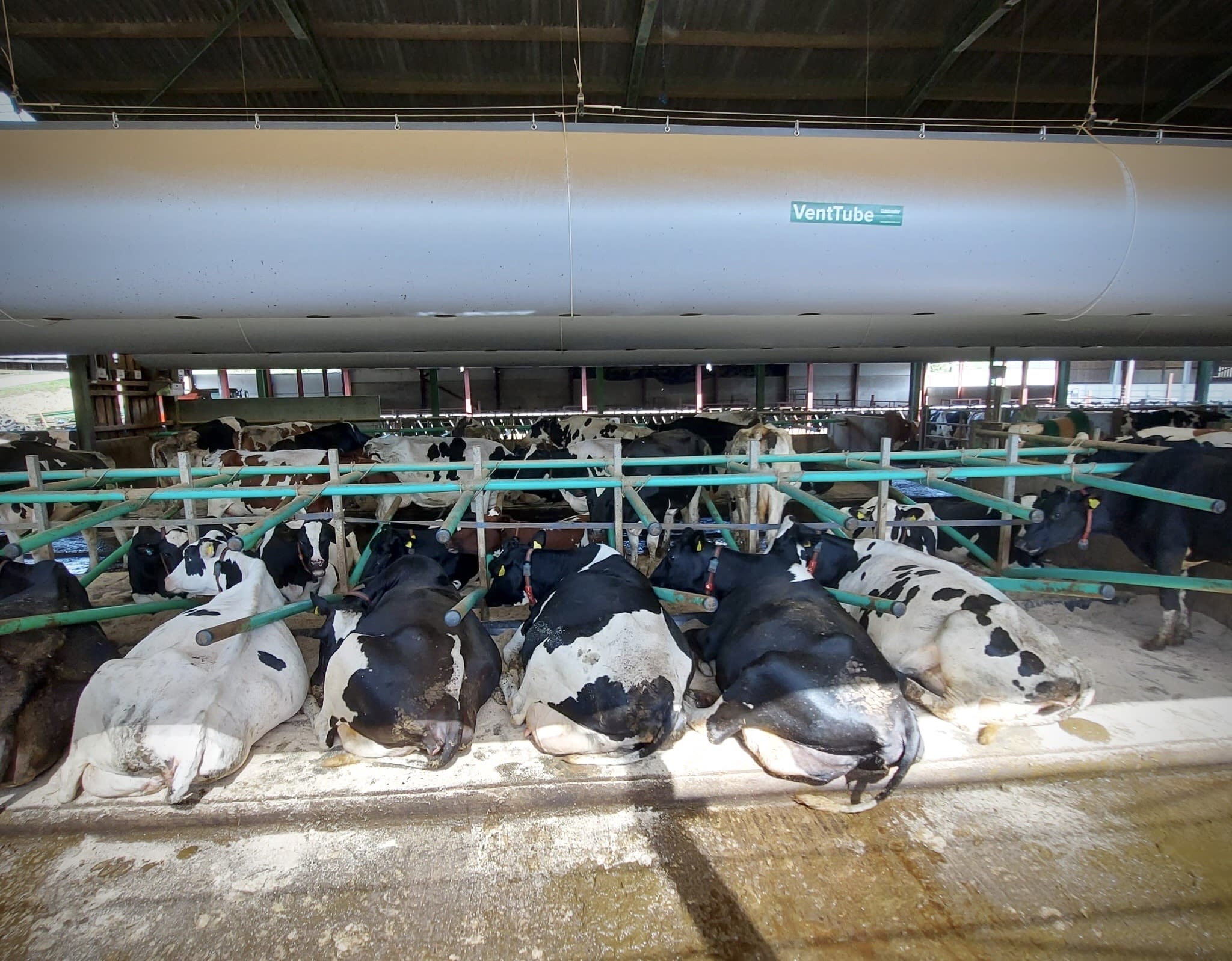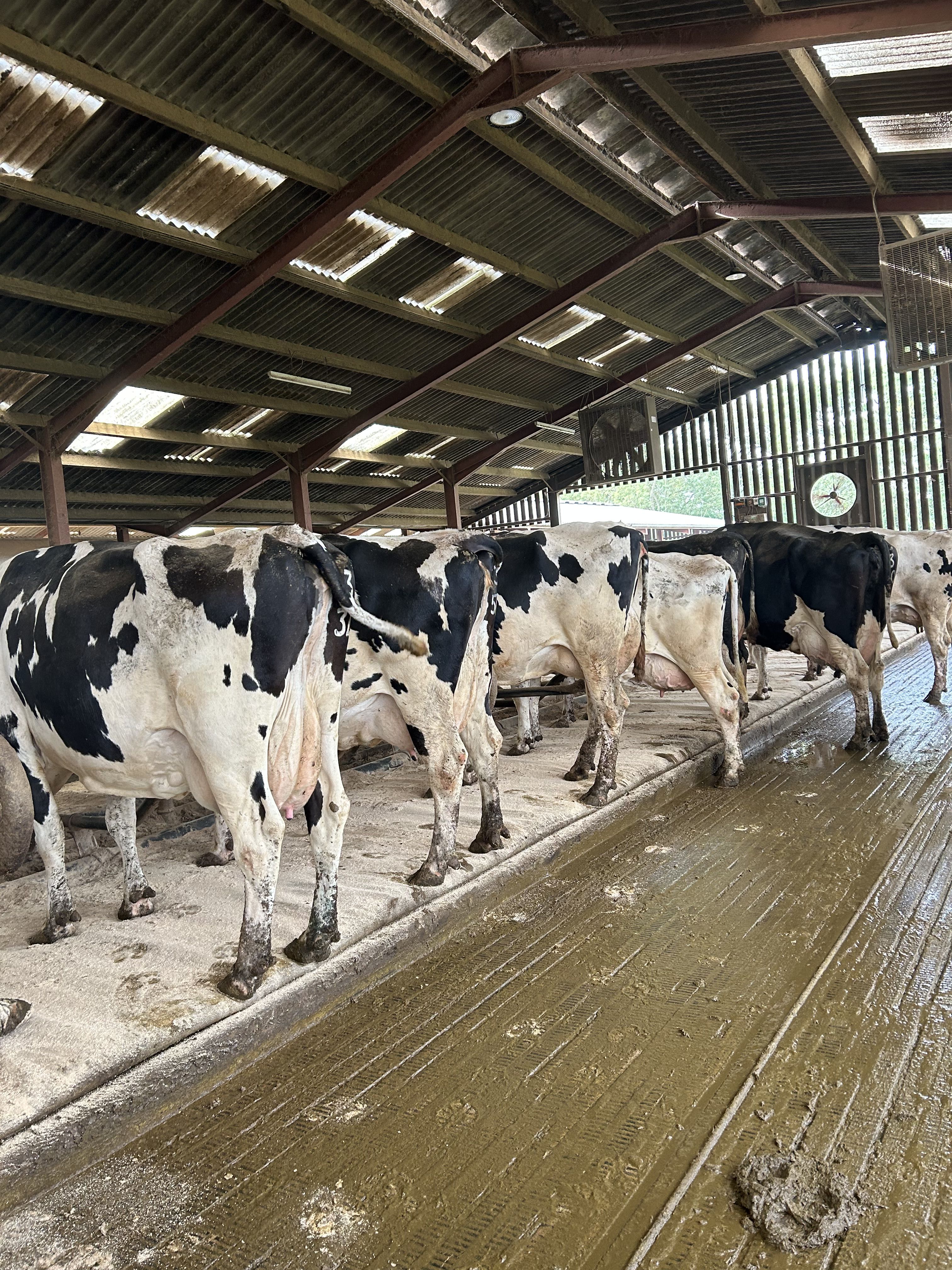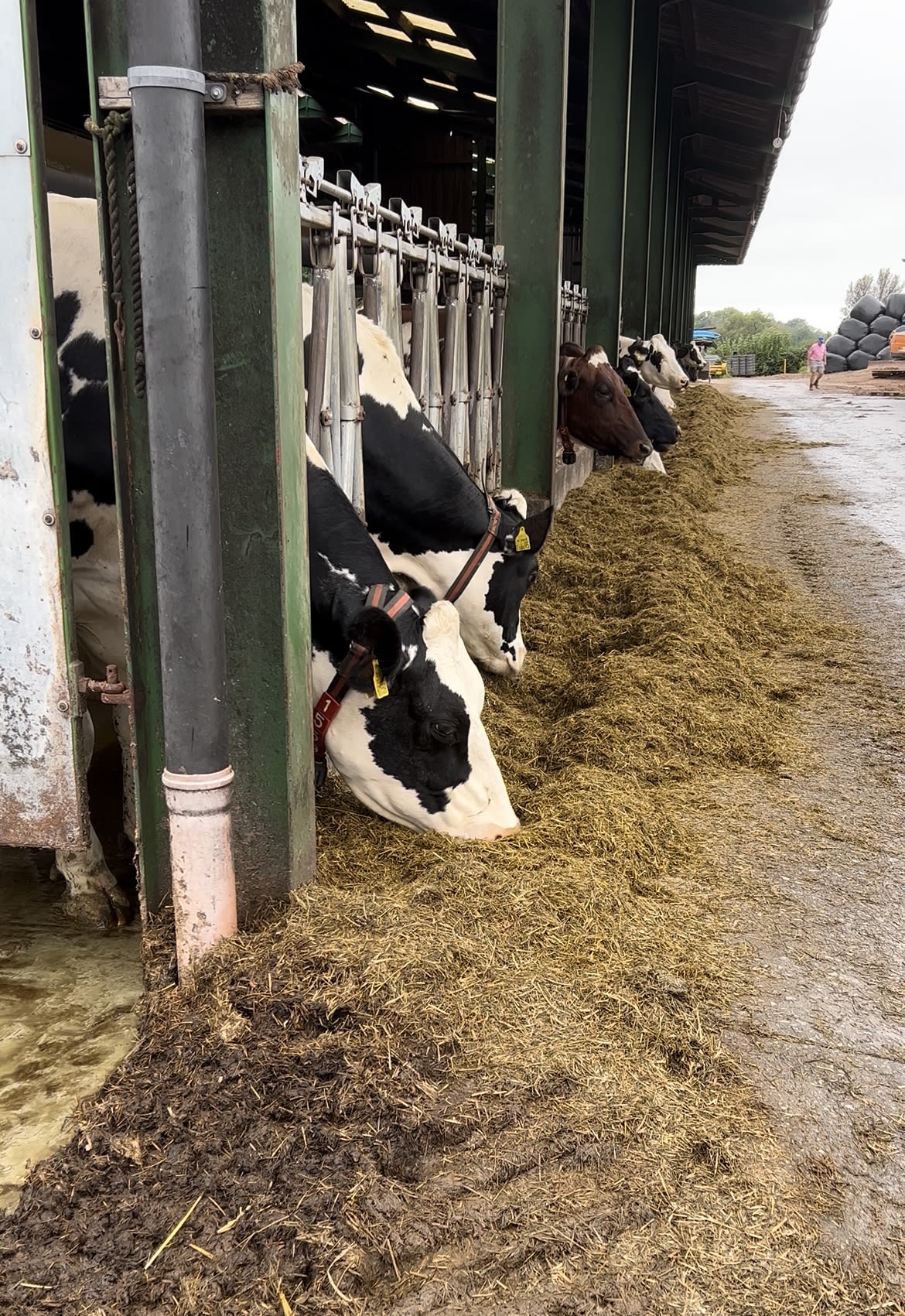Revolutionising dairy farming with AI

Any experienced herdsperson will tell you that heat stress is bad news for cows: in the short term leading to reduced milk yields, and in the long term to a range of health issues, including infertility, increased lameness in the herd, and in severe cases even cow mortality. A manager of a small herd could also tell you how the signs of heat stress appear differently in the individual cows that they look after. But what of herds that include hundreds of animals?
Supported through the UKRI Technology Missions Fund, the Animal Centred Controlled Environment for Dairy project – ACCED – has shown how a combination of building automation and AI could be much better at preventing heat stress in cows, for the benefit of farmers as well as the cows themselves.
What AI is very good at is looking at variations and deviations in animal behaviour
Andrew Gardner
Technical Director, Galebreaker Ltd

Andrew Gardner is Technical Director of Galebreaker Ltd, a company based in Ledbury, that specialises in creating controlled environments for livestock, using automation. He says: “most existing building automation works just with what the environmental conditions are: ventilating a building when it reaches a certain temperature or level of humidity. We were looking for a way of detecting signs that a cow is not comfortable, regardless of what the thermometer says, allowing a ventilation control system to become more “cow-centred.” AI makes that possible on a big scale.”
For the project Galebreaker teamed up with AI specialists SmartBell. For SmartBell’s Co-founder and Chief of Operations Jose Chitty, “ACCED has demonstrated the huge potential of using data on cow behaviour derived from ear tags and sensors. The resulting system can monitor livestock closely and regulate their environment, without the need for human observation or intervention.”
“What AI is very good at is looking at variations and deviations in animal behaviour: being able to tell you exactly how much more an individual cow has been lying down, or how much less they have been eating. These tools give us a way of quantifying what an experienced herdsperson would know intuitively.”
We were looking for…signs that a cow is not comfortable, regardless of what the thermometer says. AI makes that possible on a big scale.
Andrew Gardner
Technical Director, Galebreaker Ltd
Heat stress directly affects animal welfare, but it also has economic consequences through its effect on fertility and long-term lameness, as well as milk yields

The ACCED project was a feasibility study, which is now successfully completed. Early results from two commercial farms, one of which was fitted with the new, automated Galebreaker ventilation systems, show significant differences between the cows during an unusually warm period in September 2023.
“There were some surprises in the results,” says Andrew Gardner. “We were seeing direct impacts on milk yield at lower temperature and humidity levels than the literature on the subject would suggest. Also the duration of impact was surprising: this was not just about how much heat stress the cows experienced, but how long the impacts on the animal lasted.”
The trial found that losses in milk yield…with no Galebreaker ventilation products were around £2,500 over a four-week period
Heat stress directly affects animal welfare, but it also has economic consequences through its effect on fertility and long-term lameness, as well as milk yields. The trial found that losses in milk yield on the conventional ‘control’ farm (with 200 cows) with no Galebreaker ventilation products were around £2,500, or 50 litres per cow over a four-week period. And this wasn’t just on the days of high temperatures: ‘this is an interesting finding. We saw that even after the heat dropped off, cows were still affected. They didn’t get back to their normal behaviour, and normal yield levels, for twenty days afterwards. So this isn’t just about anticipating a few exceptional days a year when it is hot: we showed that the effects were more long-term, justifying greater investment in protecting cows from heat stress.’
The ACCED feasibility project has shown how an AI-enabled, cow-centred control system could help to revolutionise dairy farms, enabling them to be more productive, sustainable and ultimately more profitable for the farmer.
UKRI Technology Missions Fund
The UKRI Technology Missions Fund is designed to exploit the UK’s global leadership in transformative technologies to help solve specific problems, whilst also helping cement that leading position. Overall, UKRI is investing £320 million in Technology Missions to enable new and existing capabilities and capacity in artificial intelligence, engineering biology, future telecommunications and quantum technologies in the years 2023 to 2025 and beyond.
Find out more
Find out more about the UKRI Technology Missions Fund
Find out more about Our strategy 2022 to 2027
Find out more about how we are supporting Tomorrow’s Technologies



